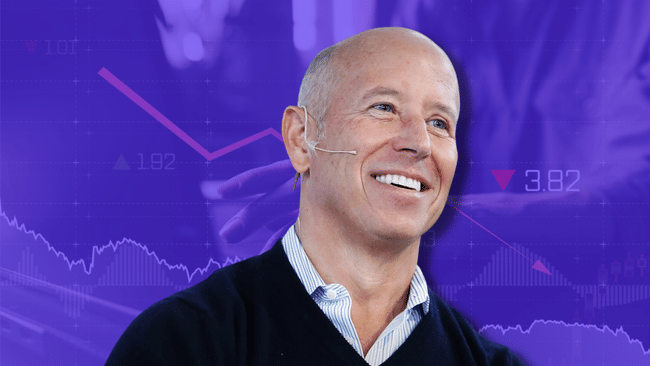Most people expect all sorts of worst-case scenarios. This billionaire is going a bit against the grain, and expects inflation to fall. What leads him to this expectation? And will there eventually be a recession despite the fall in inflation?

Barry Sternlicht, CEO of Starwood Capital, takes the controversial view that inflation will fall sharply. His predictions go against the statements of some other financial experts such as Jamie Dimon, CEO of JPMorgan Chase. Dimon points to the potential for higher inflation and the risks associated with that phenomenon, while Sternlicht believes the evidence points the other way.
Sternlicht argues that falling rents are one of the main reasons why we should expect inflation to fall. Rent growth continued to slow in February, with a 0.25% year-over-year decline. He also points out that inflation as measured by the Consumer Price Index slowed from 9.1% to 6%.
The CEO of Starwood Capital also criticizes the Federal Reserve for using old data in its decision making and for aggressively raising rates. According to Sternlicht, this policy could lead to a serious recession even as inflation falls.
Sternlicht focuses on falling rents as one of the main indicators of falling inflation. He argues that rent growth slowed in February to a 0.25% year-over-year decline. This is a significant figure, following the slowdown in inflation as measured by the Consumer Price Index from 9.1% to 6%. It is important to note here that rents account for around 70% of the CPI, which indicates the level of inflation.
This argument is at odds with the views of Jamie Dimon, who believes that inflation will remain high and that the economic risks associated with this phenomenon are still present. It should be stressed that the two sides represent different interpretations of the current economic data. While Dimon focuses on headline inflation and the risks that arise from it, Sternlicht focuses on a specific indicator - rents - and its impact on headline inflation.
Sternlicht's criticism of the Federal Reserve is another point in his argument. Sternlicht accuses the Fed of using outdated data in its rate decisions and of raising rates too aggressively. He says this policy poses a major threat to the economy because it could lead to a severe recession even as inflation falls.
Fed chairman Jerome Powell and his merry band of lunatics are destroying faith in capitalism and will eventually cause social unrest.
He told Fortune.
His fears are not without merit. Aggressive rate hikes can have a number of negative consequences, such as higher borrowing costs for businesses and consumers, which could cause economic growth to slow and eventually cause a recession. At the same time, it is important to remember that the Federal Reserve is trying to balance the risks associated with inflation and economic growth.
Sternlicht's prediction of a decline in inflation is controversial and differs from mainstream economic thinking, but it is important to take it seriously and examine the arguments that support it. His views provide an alternative view of the current economic situation and highlight potential weaknesses in Federal Reserve policy.
Although Sternlicht's view is controversial and has not gained widespread support, it is important to pay attention to alternative views of the economy. His arguments provide us with another perspective in assessing the current economic climate.
It is important to note that Sternlicht's warning about recession should not be taken lightly. Economic cycles alternate, and if inflation does fall and a recession does occur, it will be crucial that the economy is prepared for the change. This includes, above all, careful monitoring of economic indicators, taking well-considered policy decisions and promoting sustainable growth.
The discussion between Barry Sternlicht and Jamie Dimon presents an interesting contrast between two different views on the economy and inflation. While Dimon focuses on potentially higher inflation and the risks associated with this phenomenon, Sternlicht predicts a decline in inflation and warns of a recession. This difference of opinion forces us to consider what the true state of the economy is and how we should respond to any fluctuations in inflation or recession.
In future, economists, politicians and investors should focus on closely monitoring economic indicators in order to be able to anticipate and react to changes. In addition, they should be open to different views and approaches to better understand the complex economic environment.
In conclusion, Barry Sternlicht's predictions of falling inflation and a possible recession should not be ignored. While his views are not in line with mainstream economic thought, they represent an important contribution to the debate about the current and future state of the economy. His arguments should be taken seriously, not only in terms of theory but also in terms of practical implications for policy and investment.
WARNING: I am not a financial advisor, and this material does not serve as a financial or investment recommendation. The content of this material is purely informational.